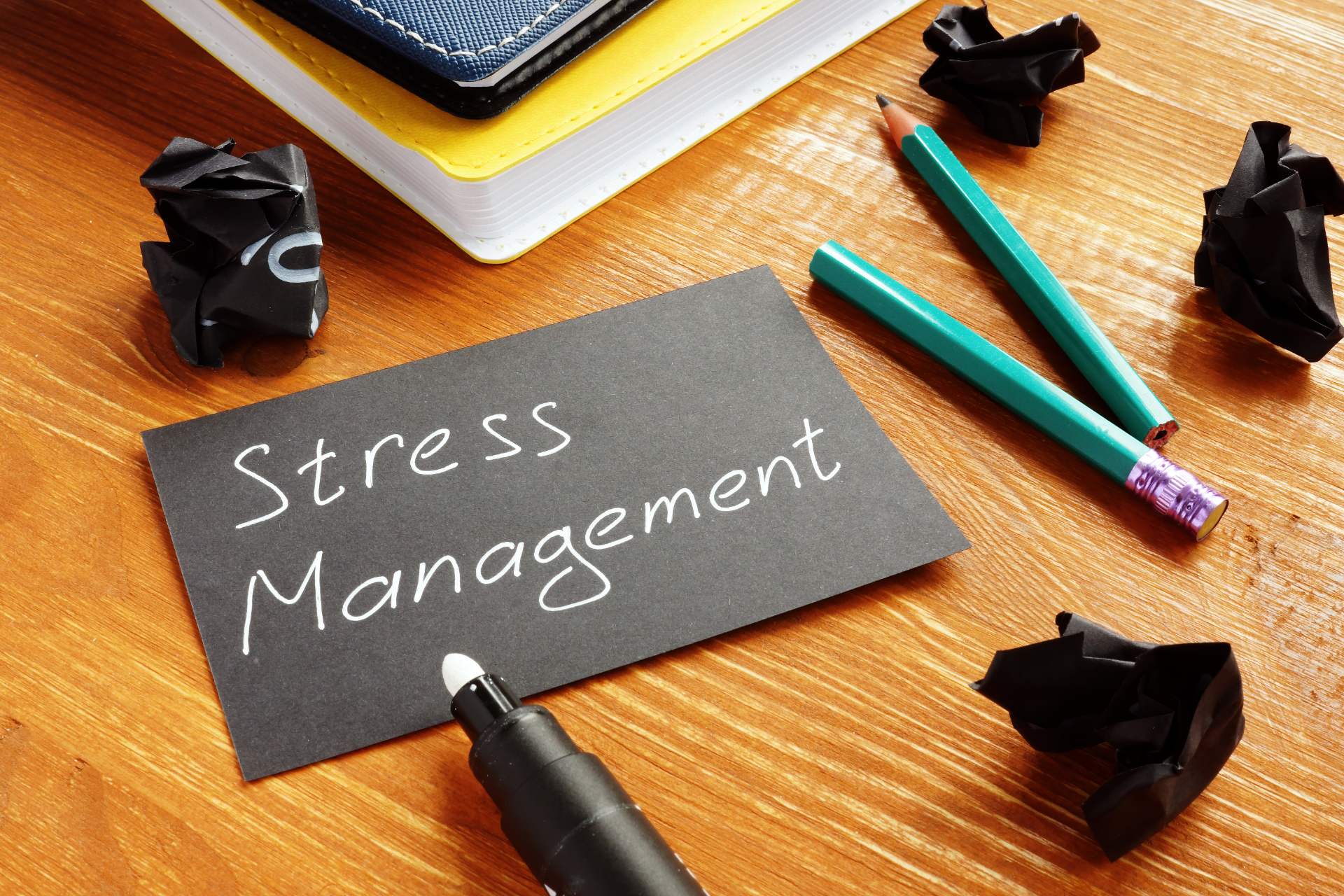
In today’s fast-paced society, where our schedules are packed and the demands on our time and energy seem endless, stress has become a familiar yet unwelcome companion. It creeps into our lives, affecting our health, productivity, and well-being. In this blog, we’ll explore effective strategies for managing stress in a busy world, ensuring that you can find your zen and maintain mental, emotional, and physical health.
Understanding Stress in Our Modern Context
Stress is the body’s response to any demand or challenge. While it can sometimes be beneficial, helping us to push through deadlines or perform well in challenging situations, chronic stress can be detrimental to our health. In the hustle of today’s world, many of us experience this chronic stress daily, whether it’s from juggling work and family life, facing constant connectivity through digital devices, or managing personal and professional expectations.
The Impact of Stress
Chronic stress can lead to a myriad of health issues, including anxiety, depression, heart disease, and a weakened immune system. It can disrupt sleep, appetite, and overall quality of life. Recognizing these potential impacts is the first step toward managing stress effectively.
As Mental health providers, we encounter many individuals grappling with the pervasive impact of stress on their daily lives. Understanding the biological underpinnings of stress, particularly how it influences cortisol levels, is crucial for developing effective strategies to manage its effects. Here, we will explain how cortisol functions, why it was beneficial in our evolutionary past, its implications in the modern world, and how targeted activities and therapy can help in managing stress.
Understanding Cortisol: The Body’s Stress Hormone
Cortisol, often dubbed the “stress hormone,” is released by the adrenal glands during times of stress. Historically, this response was vital for human survival, providing the necessary physiological changes to confront or flee from physical threats. This “fight or flight” mechanism leads to a surge in cortisol, which increases glucose levels in the blood, providing immediate energy to muscles, while temporarily inhibiting other bodily functions such as digestion and reproduction, which are non-essential in life-threatening situations.
Cortisol in the Modern World
Unlike our ancestors facing physical dangers, the challenges most of us face today are psychological and chronic—such as work pressure, financial stress, or relationship conflicts. The problem with modern stressors is their persistence, which can lead to a prolonged elevation of cortisol. This chronic exposure to high cortisol levels can have significant negative effects on health, including:
- Impaired Cognitive Performance: High cortisol can disrupt synaptic regulation, eventually impairing memory formation.
- Lower Immunity: Persistent cortisol release weakens the immune system, making one more susceptible to infections.
- Increased Weight and Heart Disease Risk: Continuous cortisol exposure is linked to an unhealthy accumulation of fat around vital organs and increases in blood pressure and blood sugar levels, compounding the risk of metabolic and cardiovascular diseases.
Harnessing Activities to Boost “Happy Hormones”
One effective way to mitigate the effects of stress and lower cortisol levels is through activities that boost hormones associated with happiness and well-being, such as serotonin, dopamine, endorphins, and oxytocin. These activities include:
- Exercise: Regular physical activity, especially aerobic exercises, can increase endorphin levels, improving mood and reducing stress.
- Social Interaction: Engaging in meaningful social activities can elevate oxytocin levels, enhancing a sense of connectedness and emotional well-being.
- Mindfulness and Relaxation: Practices like meditation, deep breathing exercises, and yoga can reduce stress and enhance serotonin and dopamine levels.
The Role of Therapy in Stress Management
As Mental health providers we often use therapeutic approaches such as Cognitive Behavioral Therapy (CBT) to help clients manage stress effectively. Therapy sessions focus on:
- Cognitive Restructuring: Helping clients identify and challenge stress-inducing thoughts and replace them with more balanced and constructive alternatives.
- Skill Development: Teaching practical stress management skills, including assertiveness training, relaxation techniques, and time management.
- Behavioral Activation: Encouraging engagement with activities that bring joy and relaxation, thereby reducing the physiological and psychological impacts of stress.
Therapy offers a structured and supportive environment for individuals to explore the sources of their stress, understand their emotional and physical responses, and develop healthier coping mechanisms.
Effective Stress Management Techniques
Here are some practical and impactful ways to manage stress, tailored to fit even the busiest of lifestyles:
- Prioritize and Organize: Start by prioritizing tasks using tools like the Eisenhower Box, which divides tasks into four categories based on urgency and importance. Learning to prioritize effectively can significantly reduce stress by making workloads more manageable.
- Set Boundaries: In our always-on world, it’s vital to set boundaries for work and personal time. This might mean turning off digital devices at a certain hour or learning to say no to non-essential tasks. Setting clear boundaries helps preserve mental health and personal time.
- Practice Mindfulness and Meditation: Incorporating mindfulness and meditation into your daily routine can greatly reduce stress. Even a few minutes a day can improve your ability to cope with stress. Apps like Headspace or Calm provide guided meditations that fit into any schedule.
- Physical Activity: Regular physical activity is a powerful stress reliever. Whether it’s a full workout in the gym, a quick walk during lunch, or a yoga session, moving your body releases endorphins and can improve your mood almost instantaneously.
- Connect with Others: Social support is crucial for managing stress. Spending time with friends and family, joining a club, or attending community events can provide emotional support and reduce feelings of isolation.
- Sleep and Nutrition: Never underestimate the power of a good night’s sleep and a balanced diet in combating stress. Ensure you are getting 7-9 hours of quality sleep and nourishing your body with foods that can help mitigate the effects of stress.
Incorporating Stress Management into Everyday Life
Adopting these stress management techniques requires commitment and consistency. Choose one or two strategies to start, and gradually incorporate more into your routine as they become habitual. Remember, the goal is not to eliminate stress entirely—which is an unrealistic expectation in our busy world—but to manage it effectively so that it doesn’t control your life.
Conclusion
In today’s relentless pace, finding effective ways to manage stress is more important than ever. By implementing these strategies, you cannot only reduce your stress levels but also enhance your overall well-being. Let’s embrace these practices and find our zen, turning stress management into a valuable skill for thriving in our busy world. Remember, taking care of your mental health is not a luxury—it’s a necessity.
By adopting a holistic approach that includes lifestyle changes, targeted activities to boost mood-enhancing hormones, and therapeutic interventions, individuals can effectively manage their stress and lead healthier, more fulfilling lives. On this journey, remember that it is not only about reducing stress but also about enhancing overall well-being and resilience.



